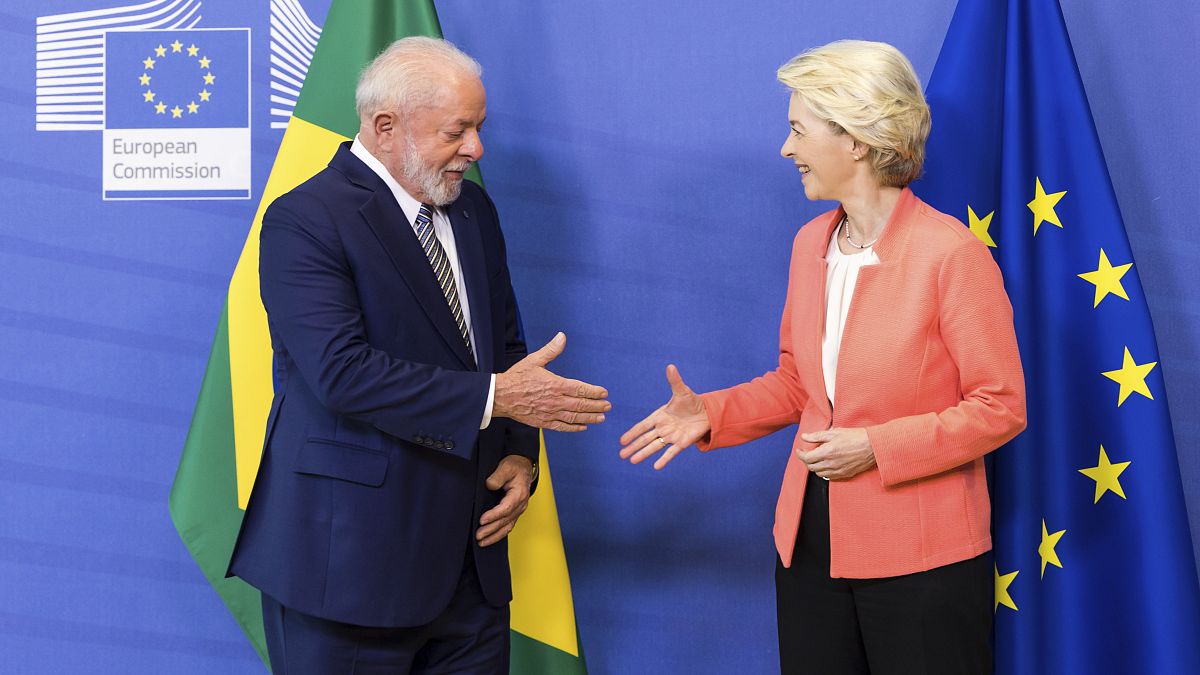French MPs in Strasbourg and Paris are intensifying pressure on France to oppose the Mercosur trade deal amid concerns over environmental and agricultural implications. Negotiations between the EU and Mercosur countries have been ongoing for nearly 20 years with the goal of creating a free trade area covering 780 million people and a trade value of up to €45 billion. A deal was initially reached in 2019, but was blocked by some EU member states due to insufficient environmental commitments. The agreement would involve the EU opening its markets to goods such as beef, sugar, and poultry from South America, raising concerns about the impact on EU agriculture.
French President Emmanuel Macron has expressed opposition to the agreement in response to pressure from French farmers. Some French MEPs have called on France to oppose the negotiations and build a blocking minority within the EU Council. They argue that the agreement would be detrimental to biodiversity, forests, farmers, and employees due to lower environmental and social standards in Mercosur countries. French MP Pascal Lecamp has spearheaded opposition to the deal, emphasizing the importance of maintaining European production and environmental standards, particularly in the agriculture sector to preserve food sovereignty and support French farmers.
The Mercosur agreement includes both trade and political aspects, requiring ratification at national and EU levels. French politicians are concerned that the trade element could be ratified solely at the EU level, bypassing national parliaments. French MEPs are increasing their opposition in the European Parliament, with uncertainty about how various political groups will vote on the agreement. Renew MEP Marie-Pierre Vedrenne has rallied support for strong environmental guarantees before the adoption of the trade deal, reflecting the changing sentiment within the Parliament post-election.
There is a sense of urgency among French MEPs to halt the negotiations before a deal is finalized. While President Macron has acknowledged the importance of the Paris agreements and the protection of European interests in the Mercosur deal, he has emphasized the need for a level playing field. The sensitive nature of the Mercosur agreement within French domestic politics underscores the significance of addressing environmental and agricultural concerns in the negotiations.
In conclusion, the mounting pressure from French MPs highlights the growing opposition to the Mercosur trade deal in France. Concerns over environmental impact, agricultural standards, and the need for fair trade practices are driving the pushback against the agreement. As negotiations continue between the EU and Mercosur countries, the stance of French politicians, including President Macron, will play a crucial role in determining the outcome of the deal. The debate surrounding the Mercosur agreement underscores the complex interplay between trade, environmental sustainability, and national interests in the global economy.











